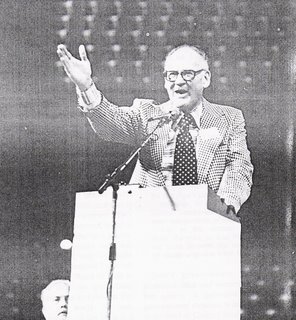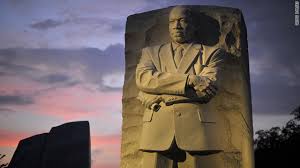 glory
glory Entries in glory (8)
The Deep Work of Glory
 Wednesday, March 21, 2018 at 11:02AM
Wednesday, March 21, 2018 at 11:02AM  Sometimes God and we have the very same goals yet we find ourselves working against him. God wants to bring many sons and daughters to glory. And we want glory. What could possibly be the problem? The problem, as is so often the case, is that God means one thing while we mean another. What God calls glory came at great cost to him, still he offers it to all. We think we have a better way.
Sometimes God and we have the very same goals yet we find ourselves working against him. God wants to bring many sons and daughters to glory. And we want glory. What could possibly be the problem? The problem, as is so often the case, is that God means one thing while we mean another. What God calls glory came at great cost to him, still he offers it to all. We think we have a better way.
We think the path to glory is our own achievement; Jesus proved the path to glory was humility. We think glory comes in the noisy public square; God gives glory in the secret place of sacrifice. The Father wants to give glory to many; we want glory as a reward fit only for the few, provided that means us.
It turns out God’s way is as important as God’s will. He wants to “bring many sons to glory.” His method is his own suffering. “In bringing many sons and daughters to glory, it was fitting that God, for whom and through whom everything exists, should make the pioneer of their salvation perfect through what he suffered. Both the one who makes people holy and those who are made holy are of the same family. So Jesus is not ashamed to call them brothers and sisters” (Hebrews 2:10-11). It’s breathtaking: his suffering makes family of us all.
We use our version of glory to set us apart from others: we require the praise of men. Our version is just plain wrong. It blinds us from seeing—or tasting—the real thing. Jesus wanted nothing to do with fool’s glory: “I do not accept glory from human beings, but I know you. I know that you do not have the love of God in your hearts. I have come in my Father’s name, and you do not accept me; but if someone else comes in his own name, you will accept him. How can you believe since you accept glory from one another but do not seek the glory that comes from the only God?” (John 5:41-44)
To accept glory that comes from the praise of men is to celebrate a cheap imitation. We must choose between the fast food of praise and the deep soul work of suffering. Jesus suffered, and others came to glory. We prefer the praise of men because such praise is food of ego. It is cheap and goes down easy. We can find it on nearly any street corner. It is tasty and filling. But the praise of men rejects the deep work of God. He invites us to become deep people. The deep work is the slow work; it is also the lasting work. Four hundred years ago Richard Sibbes encouraged us toward the deep, slow rhythms of God: “Glory follows afflictions, not as the day follows the night but as the spring follows the winter; for the winter prepares the earth for the spring, so do afflictions sanctified prepare the soul for glory.”
The deep work prepares us for eternal joy. We do not pursue suffering in order to win glory: we endure suffering and discover Jesus there, waiting for us. The Apostle Peter assures us of a result (“joy unspeakable and full of glory”) even as he tells us the truth: “since Christ suffered in his body, arm yourselves also with the same attitude, because whoever suffers in the body is done with sin.“
Glory is the true gold of life with God. It is as rare as any true gold, but there are veins of his glory available. The same Jesus who suffered for us the one willing to suffer with us. Such is his glorious assurance.
My Experience in God's Glory
 Thursday, March 21, 2013 at 10:18AM
Thursday, March 21, 2013 at 10:18AM  After the glory came the greatest message I have ever heard.I’m faced today with an insurmountable task, the natural conclusion of talking about the glory of God. Last week’s posts covered the topic, and generated a request to put up or shut up. (The commenter was more politic, something like, “please share the times you’ve experienced the glory of God.”) A second commenter gently chided me with the reminder that God’s glory is on display nightly for those with eyes to see. It was a valid correction. But the topic of these glory-posts is about personal experience—our need to encounter God, to see, feel, and breathe whatever degree of glory he is pleased for manifest. So here is a back-in-the-day story of how and when my life was forever altered because of an encounter with the glory of God.
After the glory came the greatest message I have ever heard.I’m faced today with an insurmountable task, the natural conclusion of talking about the glory of God. Last week’s posts covered the topic, and generated a request to put up or shut up. (The commenter was more politic, something like, “please share the times you’ve experienced the glory of God.”) A second commenter gently chided me with the reminder that God’s glory is on display nightly for those with eyes to see. It was a valid correction. But the topic of these glory-posts is about personal experience—our need to encounter God, to see, feel, and breathe whatever degree of glory he is pleased for manifest. So here is a back-in-the-day story of how and when my life was forever altered because of an encounter with the glory of God.
In 1975 I saw the glory of God. In an era of leisure suits and lapels wider than the Mississippi, the presence of God broke through the foolishness of men and appeared to an assembly of 3,000 men in Kansas City. I was among that crowd, a 19 year-old college kid who had played at the God-game for the past four years the way a four year-old plays with a herd of buffalo. On the final night of that conference the buffalo stampeded directly into my mind and heart. My senses where overwhelmed. As Ezekiel reported, I saw visions of God’s glory.
The interior of Kansas City’s Memorial Auditorium began to turn a chalky white. From my place in the upper deck I looked across the auditorium and, while I could still see the other side of the vast room, it was whitewashed with what might be described as a cloud, or possibly a luminescence. The men in that place had been worshiping for nearly an hour, the week had been filled with revelation, and this was the last night of meeting.
I blinked my eyes to wash the whiteness away, but there was nothing wrong with my eyes—they were reporting what they saw. The room changed in some felt way I still find difficult to describe except to say that the air became heavier, as if something was pushing down from above. It was a presence; I sensed the presence as plankton might sense the presence of a great blue whale. In the passing of a moment that presence was all around me.
Somewhere in the auditorium someone suggested we take off our shoes, because we were standing on holy ground. Moments before the auditorium was a facility, now it was a place of meeting. I took off my shoes, stepped into the aisle, and bowed low like a Bedouin welcoming a Raisuli. All over the hall, where we had previously stood in worship, we prostrated ourselves. Men groaned with utterances too deep for words. To repent would have been foolish because it would have put the focus on me, when clearly the moment was about Someone Else. The proper response was awe.
How long were we in that state, prostrated before God’s Glory? I dunno. Ten minutes or forty years. Take your pick. I can only tell you it changed me forever, and the memory of it is more than nostalgia, it is a visceral response. I feel it still.
To have been in the glory once was enough, but in the 37-plus years I have come to understand this is not meant to be a one-time event. Nor was it simply a subjective experience. It is our destination, and somehow in God’s economy we can live in the glory even as we travel toward it. It would not be too much to say that everything in my life since has flowed from that moment, one of several moments in my life when heaven met earth in an unforeseen kiss.
Awaken to Glory
 Thursday, March 14, 2013 at 12:02AM
Thursday, March 14, 2013 at 12:02AM  Moses saw the glory of God. The encounter was transformational—it changed him so much the people of Israel asked him, “Please, cover it up, you’re freaking us out.”
Moses saw the glory of God. The encounter was transformational—it changed him so much the people of Israel asked him, “Please, cover it up, you’re freaking us out.”
Glory is a strange word these days. It has the feel of movies like Gladiator, or the hyped opening to an NFL game. Religious people use it, too, but I’m not sure we know what it’s all about. It conjures up notions of Pentecostals run amuck shouting “Glory, Hallelujah!” or even that God’s glory is in the sunset—which is true, but not very useful.
But what if the glory of God wasn’t the stuff of Old Testament stories, Hollywood hoopla, or religious delusions? What if glory was a substance so real it burned our skin, or killed cancer better than chemo? What if God designed his glory to be an agent of change? Apparently the Apostle Paul had such a notion: “But we all, with unveiled face, beholding as in a mirror the glory of the Lord, are being transformed into the same image from glory to glory, just as from the Lord, the Spirit.” (2 Corinthians 3:18)
Another what if: What if, in quoting Romans 3:23 we focused on God’s intention instead of our sin? The famous verse reminds us “for all have sinned and fall short of the glory of God.” But we have walked the Romans road so often we think only of our shortcomings, but not the destination. In this case, that we were made to live in his glory, to reflect his glory, to interact with his glorious, manifest presence. That’s a game-changer for me, and the possibilities are quite literally, endless.
If we dare to circle back to the 2 Corinthians verse quoted above we are faced with the question, "What would it mean--in real-life, practical terms--to progress from glory to glory?" What would it mean in real life if our expectations were focused on an infinite path, a path designed to transform us more and more into his image? How would it change things if we awoke to our destiny to be conformed to the image of Christ?
One of the unspoken needs of the western church is to rediscover the stuff of Biblical legend, called glory. We, too, could ask (as moses asked) “Show me Your glory!”
Someone has seen that day. He spoke of what he saw when he said the sons and daughters of the kingdom will shine like the sun, but we thought he was just being poetic.
Meditation: Defining Glory
 Monday, March 11, 2013 at 11:19AM
Monday, March 11, 2013 at 11:19AM  I’ve fallen asleep at my desk twice this morning, and it has nothing to do with Daylight Savings Time. I’ve been reading entries in theological dictionaries and books on systematic theology, trying to see if anyone understands the word Glory.
I’ve fallen asleep at my desk twice this morning, and it has nothing to do with Daylight Savings Time. I’ve been reading entries in theological dictionaries and books on systematic theology, trying to see if anyone understands the word Glory.
John, the close friend of Jesus, can’t get away from the word as he struggles to describe Jesus: “We have seen his glory, the glory of the one and only Son, who came from the Father, full of grace and truth.” John can’t get away from what he has seen: he uses the word 19 times in his gospel, more than all three of the other gospels combined. John records the great prayer of Jesus in Gethsemane, and Jesus seems pretty concerned about glory—he mentions it six times as he talks to the Father.
But counting words doesn’t lead to knowing words. Nor, apparently, does using textbooks. They can beat the glory out of a glorious, life-filled reality. I think I’ve seen God’s glory twice during my lifetime—actually seen it. Try bringing that up at a small group Bible study. It shuts the party down real fast.
My first mentor C.S. Lewis wrestled with the word in an essay The Weight of Glory. He chose his own ignorance as his starting point. “Glory suggests two ideas to me, of which one seems wicked and the other ridiculous.” I won’t steal his thunder, or deprive you of the joy of discovery when you read this great master for yourself—but ten sentences from Lewis is better than all the academic drivel I’ve put up with today.
You want something to think about? Here's a meditation: I give you “Glory,” the word used more than a hundred times in the New Testament, the desire of Moses in the Old, and the hope of Jesus. It's the kind of word us moderns have lost completely, and the word without which we miss a great part of knowing our Lord.
Go ahead, I dare you: share your understanding in the comments—or better still—your experiences. But be brief, because God’s glory is anything but boring.
Meditation: Glory, Goodness, and Grace
 Monday, February 25, 2013 at 11:17AM
Monday, February 25, 2013 at 11:17AM Some days are diamonds, some days are stones, and some days are calf manure. In the middle of betrayal and spiritual adultery on the part of the children of Israel, God chose to demonstrate his goodness to Moses. Exodus 33:12-23 details the time when Moses wanted to give up on leading God’s people, and give up on life. It takes only a moment to read, but this passage can change your life:
1). As Moses pleads with God for help, God answers simply, “My Presence will go with you, and I will give you rest.” God’s first answer is to offer his presence. It’s what we need most.
2). Moses responds with wisdom that still applies for us today: “What else will distinguish me and your people from all the other people on the face of the earth?” The distinguishing mark of God’s people is his presence. In times of victory or trouble, his presence is our identity.
3). God’s assurances are filled with his personal approval of Moses, and Moses is bold enough to push all the chips into the middle of the table, “Show me your glory.” What a strange request when there are so many problems to solve!
4). Finally, even as God himself says, “yes,” to Moses, God offers a gentle instruction. Moses asked, “show me your glory,” and God says, “I will cause my goodness to pass in front of you.” The lesson is: one of the ways God demonstrates his glory is to show us his goodness. Why not ask him today to open your eyes to his goodness?
(Bonus material: Exodus 34 reveals what Moses saw when God’s goodness passed by. Check it out.)

